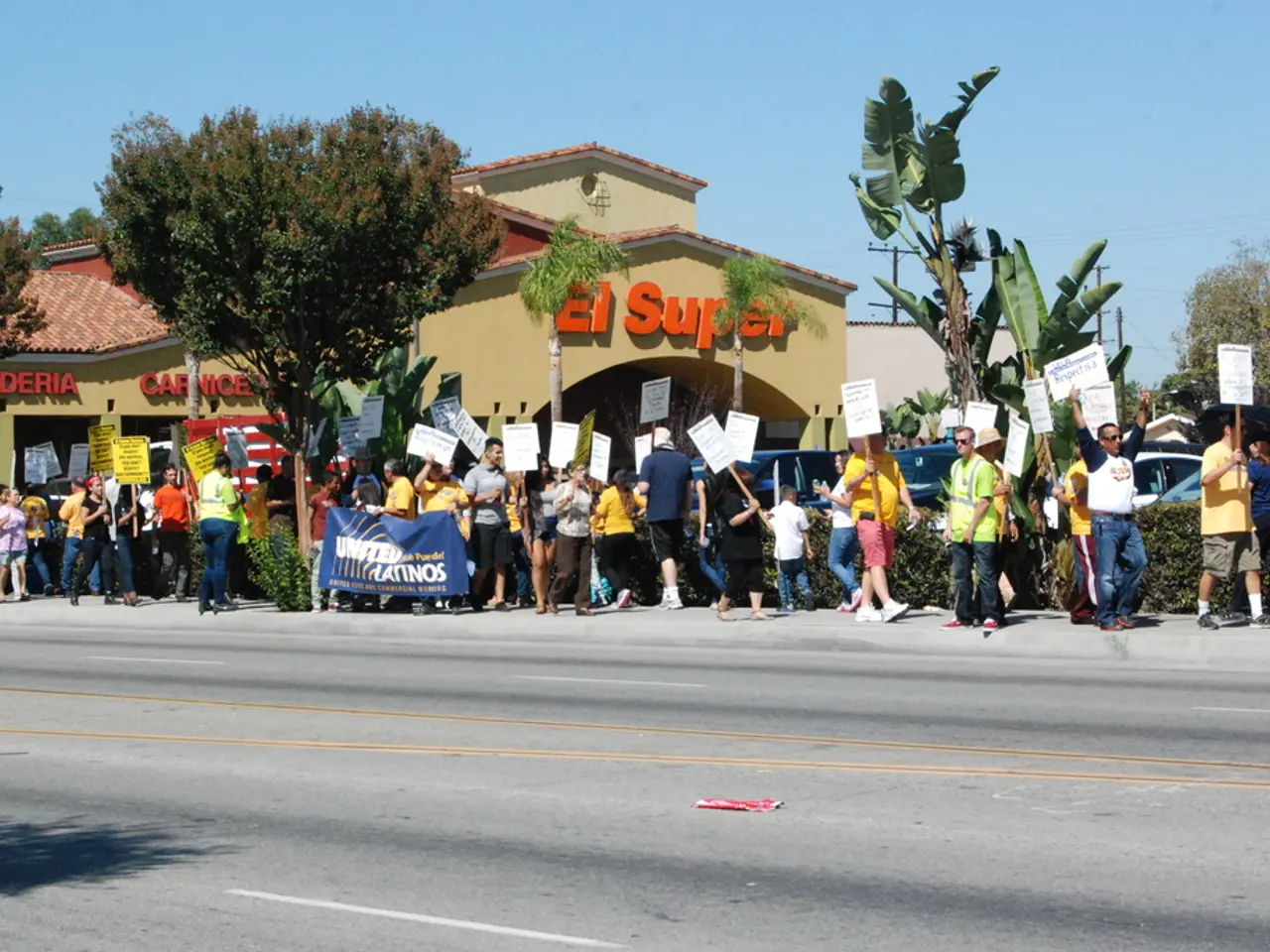sixteen-year-olds in the UK will now be granted the right to vote, as per a significant governmental reform
The United Kingdom is set to make a significant shift in its democratic system, with plans to lower the voting age from 18 to 16 for national elections. This move, part of a broader effort to modernise the UK's democracy, will put the country in the company of a select group of nations that recognise the political participation of younger citizens.
The proposal, backed by Harry Quilter-Pinner, the executive director of the Institute For Public Policy Research, is seen as a response to the crisis facing democracy, with concerns about politics losing its legitimacy due to low turnout and other issues. Prime Minister Keir Starmer supports the change, stating that if you pay taxes, you should have the opportunity to say what you want your money spent on.
The UK's proposed change will position it among countries such as Austria, Argentina, Brazil, Ecuador, and Cuba, which already allow 16-year-olds to vote in national elections. This shift is expected to boost voter turnout, with an estimated 9.5 million more people potentially added to the voter rolls through the introduction of automated voter registration.
The changes to the electoral system are compared to the reforms in 1969 when the voting age was lowered to 18. Other planned changes include making UK-issued bank cards an accepted form of ID at polling stations, following the controversial changes to electoral law introduced by the previous Conservative government which led to around 750,000 people not voting in last year's election due to the requirement for photo ID.
The voting age change is among several planned reforms to the democratic system. It follows a pledge from the ruling Labour Party and aims to align general elections with the existing voting age for elections in Scotland and Wales, where 16- and 17-year-olds can already vote in local and regional elections.
However, critics argue that the changes could be contentious, potentially benefiting certain political parties. They claim the move is self-serving as newly-enfranchised teenagers are seen as more likely to support the centre-left Labour party.
Despite these concerns, proponents see the change as a way to give young people a voice in how their country is governed, especially since they are already contributing through work and taxes. The changes, if approved, will mark the biggest reform to the UK's electoral system since 1969.
- The proposed shift in the UK's democratic system to lower the voting age from 18 to 16 for national elections is part of a broader effort to modernize the country's politics, following the lead of nations like Austria, Argentina, Brazil, Ecuador, and Cuba.
- In support of this change, Prime Minister Keir Starmer has stated that if you pay taxes, you should have the opportunity to say what you want your money spent on, echoing sentiments shared by critics of low turnout and other issues facing democracy.
- Alongside the voting age change, other planned reforms to the democratic system include making UK-issued bank cards an accepted form of ID at polling stations, addressing concerns related to the previous government's controversial changes to electoral law.
- The voting age change and other planned reforms aim to align general elections with the existing voting age for elections in Scotland and Wales, giving more young people a voice in how their country is governed through their work and taxes.





